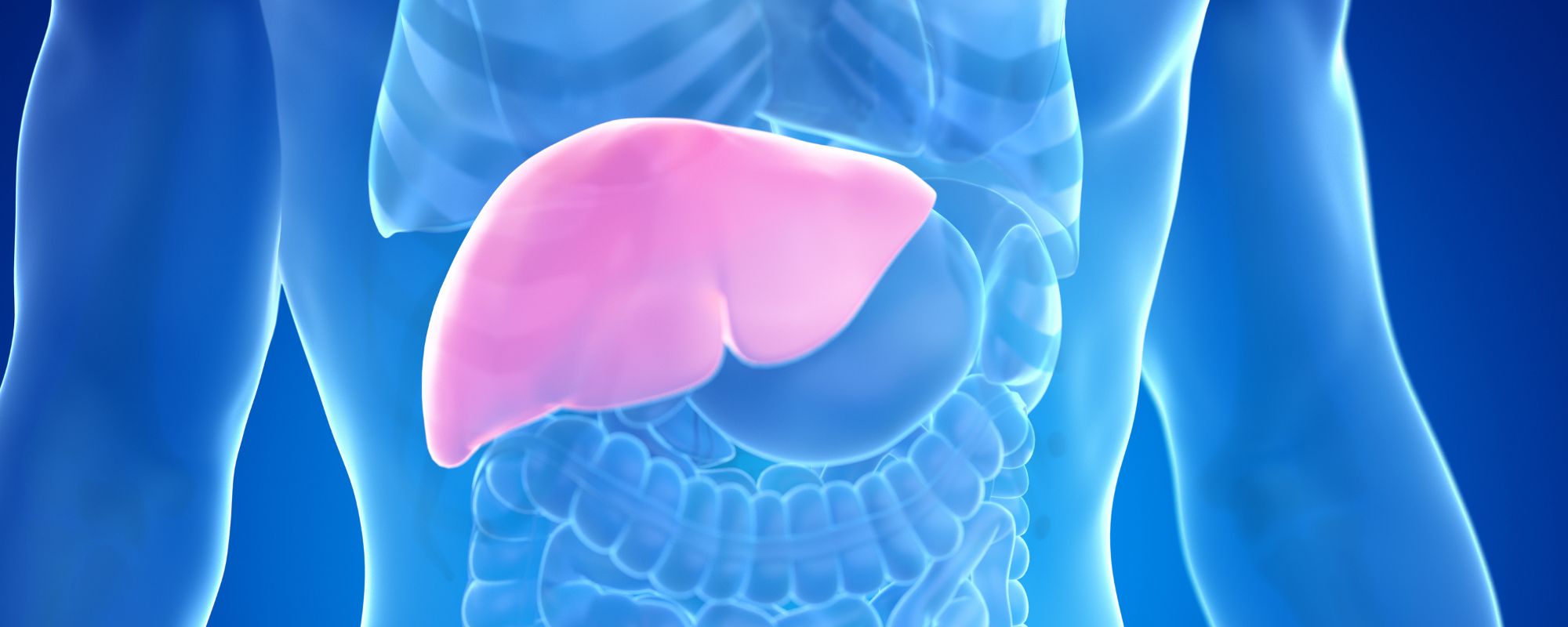Methadone clinics can be a great tool for those who are struggling with opioid addiction. However, it is important to know exactly what these clinics are, as well as the risks they may carry, before seeking one out. Sound Recovery Centers can help you understand methadone and provide treatment if you are struggling with an addiction to this medication.
What Is a Methadone Clinic?
A methadone clinic is a specialized medical facility that provides medication-assisted treatment (MAT). This treatment is intended to treat those who are struggling with opioid use disorder (OUD).
The primary medication offered at these clinics is methadone. This is a long-acting opioid that helps manage opioid withdrawal symptoms and cravings. While the exact treatment process can vary based on the specific clinic you attend, it will generally entail the following:
- Intake and assessment: You will undergo a thorough evaluation. This will help your treatment provider determine your eligibility for methadone treatment.
- Medication dispensing: Methadone is dispensed daily under medical supervision. The dosage is gradually increased to help suppress withdrawal symptoms and cravings.
- Counseling and therapy: You will receive counseling and therapy sessions to address the underlying causes of your addiction and develop coping skills.
- Monitoring and support: Regular urine drug tests and medical check-ups will be conducted. These help monitor your progress and identify any potential issues.
What Is Methadone Used For?
Methadone is a key component of medication-assisted treatment for opioid addiction. It has been proven to significantly help with the management of opioid withdrawal symptoms and cravings. This can be essential for reducing the risk of relapse.
By stabilizing opioid receptors in the brain, methadone blocks the euphoric effects of other opioids. This makes it less likely for individuals to use illicit drugs. In some cases, methadone may be prescribed to manage severe pain in those who are resistant to other pain medications.
However, due to its addictive nature, it is generally reserved for severe cases. Because methadone has a high risk for abuse, it should be used with caution and under careful observation from a healthcare professional.
How Do People Get Methadone?
There are two main ways that people can get methadone. The first and most common avenue is to get methadone from a clinic. In order to do this, the individual will need to undergo a medical evaluation to assess whether or not they qualify for this treatment.
They will also need to participate in counseling and therapy sessions, as well as commit to regular drug tests and clinic visits. Because this can be a significant time commitment, it is important to speak with your doctor to make sure this is the right choice for you.
For some people, methadone may also be prescribed for severe pain management. However, as methadone can be addictive, this medication is typically reserved for specific situations and will require careful monitoring.
In some cases, people may attempt to buy methadone online or from other non-official sources. This can be extremely dangerous, as there is no way to verify the medication’s authenticity. It is always safer to seek help from a free methadone clinic or through a licensed healthcare provider.
How Does Methadone Affect the Brain?
Methadone primarily affects the brain’s opioid receptors. These are responsible for pain perception, reward, and other functions. This medication works by binding to opioid receptors in the brain and spinal cord. This helps block pain signals and provides relief for these symptoms.
Methadone also activates the brain’s reward system. It does so by releasing dopamine, a neurotransmitter associated with pleasure and motivation. This can contribute to feelings of euphoria. Unfortunately, this can reinforce use, leading to dependence.
Is Methadone Dangerous?
Long-term methadone use can be dangerous. Repeatedly using this drug can lead to changes in brain structure and function. In particular, it can affect the areas involved in reward, memory, and decision-making.
Some studies have suggested that chronic methadone use may lead to cognitive deficits. This can include impaired attention, memory, and problem-solving abilities. There is also a chance of respiratory depression while taking methadone. Furthermore, methadone can be physically and psychologically addictive.
This means that suddenly stopping methadone can lead to severe withdrawal symptoms. In an attempt to ease these symptoms, people may revert to using methadone. Unfortunately, they may end up taking too much, which can have additional negative consequences.
Taking too high a dose can lead to methadone overdose symptoms. This can include side effects such as confusion and respiratory depression, which can be life-threatening. If a methadone overdose occurs, emergency medical treatment will be needed to stop it.
What Are the Signs of Methadone Addiction?
As an opioid, it is possible to become addicted to methadone. If you or a loved one is taking this medication, it is important to know how to recognize the signs of methadone addiction. While the exact signs and symptoms can vary depending on the person, they will generally include:
Behavioral Signs:
- Preoccupation with Methadone: Constantly thinking about obtaining or using methadone.
- Neglecting Responsibilities: Prioritizing methadone use over other responsibilities, such as work, school, or family obligations.
- Social Isolation: Withdrawing from social activities and relationships.
- Financial Problems: Spending excessive amounts of money on methadone or related activities.
- Legal Issues: Engaging in criminal activities to obtain methadone.
- Multi-Substance Abuse: Mixing other substances with methadone can be a sign of abuse. Combining methadone and alcohol, for example, can enhance its effects but have dangerous side effects.
Physical Signs:
- Changes in Appearance: Weight gain or loss, poor hygiene, and disheveled appearance.
- Drowsiness and Fatigue: Excessive sleepiness or difficulty staying awake.
- Constipation: Chronic constipation due to the effects of methadone on the digestive system.
- Slurred Speech: Difficulty speaking clearly.
- Slowed Breathing: Reduced respiratory rate.
- Pupil Changes: Constricted pupils.
Psychological Signs:
- Mood Swings: Experiencing intense mood swings, including irritability, anxiety, and depression.
- Cravings: Intense cravings for methadone, especially when not taking the medication.
- Tolerance: Needing higher doses of methadone to achieve the desired effects.
- Withdrawal Symptoms: Experiencing physical and psychological symptoms when not taking methadone, such as muscle aches, sweating, insomnia, and anxiety.
If you or someone you know is struggling with methadone addiction, it is important to seek professional help. Opioid use disorders can have serious consequences, but with the right support and treatment, recovery is possible.
What Is Methadone Detox Like?
Methadone detox can be a challenging process. However, with proper medical supervision and support, it is manageable. It is important to note that this experience can vary greatly from person to person.
Factors like the length of methadone use, dosage, and individual physiology can all affect what this process may look like. For the most part, detox is best done in a supervised, clinical setting. At Sound Recovery Centers, our medical professionals provide 24/7 supervision.
They will provide vital support throughout the withdrawal period, including vital sign monitoring, medication-assisted treatment, and various therapies. We provide highly personalized and structured care to ensure you are able to build a strong foundation for long-term recovery.
Methadone Withdrawal Symptoms
There are several withdrawal symptoms people may experience upon stopping their methadone use. Some of the more common mild symptoms of methadone withdrawal include:
- Runny nose
- Watery eyes
- Yawning
- Muscle aches
- Sweating
- Insomnia
- Anxiety
- Restlessness
- In some cases, people may experience more severe symptoms. These can include:
- Severe muscle aches
- Intense cravings
- Nausea and vomiting
- Diarrhea
- Chills and fever
- Agitation
- Depression
Because of how unpredictable the methadone withdrawal process can be, it is crucial to seek professional help when attempting to stop the use of this medication. The addiction specialists and clinicians at Sound Recovery Centers can help you put your best foot forward on the path to recovery.
Methadone Detox Timeline
When it comes to the methadone detox timeline, it is important to keep in mind that there is no exact timeframe for how long this process can take. Generally, though, there are three main withdrawal phases that people experience.
The first phase usually begins within 24-36 hours after their last dose of methadone. This will usually entail more mild symptoms, such as runny nose, muscle aches, and sweating. Days 4-10 are typically when withdrawal symptoms peak.
This stage of withdrawal may bring with it more severe symptoms, such as intense cravings, nausea, and vomiting. As the most intense phase of methadone withdrawal, it is important to have the right support to prevent relapse.
While withdrawal will typically end after ten days, some people will experience what is known as protracted withdrawal. Also known as PAWS, this can last for months or even years. These symptoms can include:
- Mood swings
- Difficulty concentrating
- Sleep disturbances
- Anxiety
- Depression
Because of how difficult the methadone withdrawal period can be, it is important to seek professional help when stopping this medication. Sound Recovery Centers offers the structure and support you need to start your recovery on the right foot.
Preparing for Methadone Detox
If you are thinking about attending a methadone detox program, it is important to know how you should prepare. At Sound Recovery Centers, we will take you through a full evaluation and medical assessment to determine the best recovery plan for your needs.
It can help to build a solid support system before starting the detox process. Whether this includes family, friends, or recovery support groups, having people to encourage you can be a huge motivator in recovery.
The best way to prepare for detox is to know what services your treatment center provides. Sound Recovery Centers offers a full continuum of care to provide support throughout the entirety of your recovery journey. We can help you understand your treatment options and answer any questions you may have about the detox process.
Who Can Help With Methadone Detox?
Detoxing, especially from an opioid like methadone, can be dangerous when attempted alone. Professional treatment centers like Sound Recovery can help you navigate this process safely and successfully.
What Are the Benefits of a Methadone Detox Center?
Our methadone detox center offers several significant benefits for those struggling with methadone addiction. Some of the main benefits of attending a methadone detox program include:
- Medical Supervision: Through providing 24/7 medical supervision and support, we ensure your safety and comfort throughout the detox process.
- Medication-Assisted Treatment (MAT): Our center utilizes MAT, which involves using other medications like buprenorphine. These can ease withdrawal symptoms and reduce cravings, preventing relapse.
- Gradual Dose Reduction: In some cases, the methadone dose itself can be gradually reduced under medical supervision, minimizing withdrawal symptoms.
- Therapy and Counseling: We integrate therapy and counseling into our program. This helps address the underlying emotional and psychological factors that contribute to addiction.
- Structured Environment: The structured environment of our detox center can help you focus on your recovery without the distractions and temptations of daily life.
These are just a few of the benefits you can experience from participating in a detox program. If you are struggling with methadone addiction, seeking professional help at our detox center can significantly increase your chances of a safe and successful recovery.
Helping a Loved One Find a Methadone Clinic
If someone you know is struggling with methadone addiction, you may be wondering what would be the best way to convince them to seek help. The best way to approach this issue is from a place of compassion and understanding.
An intervention specialist can help you talk to your loved one and successfully recommend treatment to them. Sound Recovery Centers can help you plan and carry out an intervention. We will help you reach your loved one and convince them to get the help they need.
Other Tips for Recovering from Methadone
While detox is your best resource for managing the early stages of recovery from methadone addiction, it is not your only option. There are several other things you can do to ensure your path to sobriety is as successful as possible.
Some additional recovery resources and tools you can use include:
Recovery Support Groups
Recovery support groups can be a great way to build a support system and stay committed to your sobriety. This might include participating in groups like Programs like Narcotics Anonymous (NA) and Alcoholics Anonymous (AA), which can provide a supportive community and a structured recovery framework.
Additionally, peer support can also be helpful on your road to recovery. Connecting with other individuals in recovery through these groups allows you to share your experiences and receive mutual support.
Holistic Lifestyle Changes
There are several holistic lifestyle changes you can make to support your journey to sobriety. This can include making changes such as:
- Healthy Habits: It is important to maintain healthy habits such as regular exercise, a balanced diet, and sufficient sleep. These can improve your overall physical and mental health, boosting your resilience to stress and cravings.
- Stress Management Techniques: Practicing stress management techniques like mindfulness, meditation, yoga, or deep breathing exercises can help you manage your anxiety and prevent relapse.
- Healthy Relationships: Cultivating healthy relationships with family, friends, and loved ones can be crucial for your recovery. Surround yourself with supportive people who encourage you on your journey to sobriety.
Family Resources
Addiction does not only affect the person who is struggling with substance abuse. The loved ones of those struggling with addiction are often also left reaping the consequences of their substance issues. Opioid overdose is a real concern as overdose deaths have increased in Washington state to more than 1,200 per year. Our care facilities are skilled at treating opioid abuse through medication-assisted treatment. Buprenorphine treatment, along with methadone maintenance treatments, are valuable tools in the fight against substance use disorders like opioids.
Because of this, it is important to seek support resources for the whole family while on your recovery journey. Sound Recovery Centers offers family therapy and other family resources to help you, as well as your whole family, recover from the impacts of addiction. Our treatment programs for methadone maintenance include medically assisted detox as part of our overall opioid addiction treatment programs.
If you are looking for a methadone treatment center, we are here to help. Our admissions team is available 24/7 to answer all your recovery questions and help you understand your treatment options. Call us today to learn more about our detox program, how to use health insurance to pay for rehab, and how we can help you end opioid dependency.














